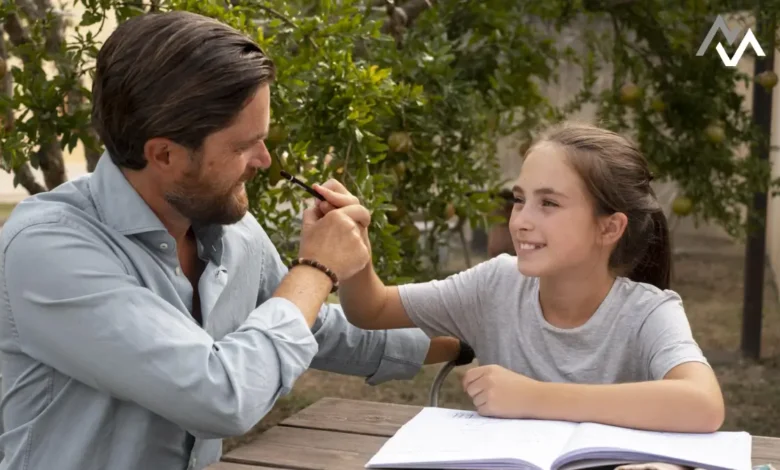Effective Tips to Teach Communication and Expression to Your Child

Communication is a key life skill that shapes a child’s ability to connect with others, express thoughts, and navigate the world. Here are seven essential tips to help your child develop these skills:
Encourage Open Conversations
Create a safe environment where your child feels comfortable expressing their thoughts and emotions. Make it a habit to ask about their day, their feelings, and thoughts on different matters. This encourages them to share openly, knowing their voice matters.
Model Good Communication
Children learn by watching. Demonstrate active listening—maintaining eye contact, showing empathy, and responding thoughtfully. When they see you giving attention during conversations, they will emulate these behaviors. Let your communication be clear and respectful, serving as a guide for how they should interact with others.
Read Together and Discuss
Reading stories with your child not only enhances their vocabulary but also stimulates emotional and cognitive development. After reading, discuss the story. Ask them how they feel about the characters, what they think about the storyline, and what they would have done differently. This encourages critical thinking and expressive skills.
Encourage Emotional Expression
Help your child recognize and label their emotions. By teaching them terms like happiness, sadness, frustration, and excitement, you allow them to articulate what they’re feeling, rather than acting out. It’s essential to create a space where they can express all emotions without judgment.
Play Interactive Games
Games like charades, Pictionary, or role-playing improve both verbal and non-verbal communication. They provide a fun and engaging way for children to practice expressing ideas, reading body language, and building confidence in social situations.
Praise Efforts, Not Perfection
Encourage your child by celebrating their attempts at communication, even if they make mistakes. Positive reinforcement boosts their confidence and motivates them to keep trying, rather than feeling discouraged by failure. Emphasize progress over perfection.
Use Visual Aids and Props
Sometimes, children find it easier to express themselves through creative outlets. Encourage them to draw pictures, use puppets, or even write stories to communicate their feelings or ideas. This helps them convey complex emotions in a simpler, more comfortable manner.
By practicing these techniques consistently, your child will develop strong communication skills that are essential for building meaningful relationships and navigating the complexities of the world. Effective communication fosters a confident, expressive individual capable of connecting with others on a deeper level.




